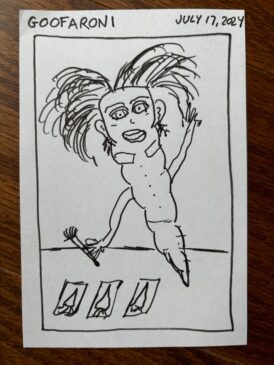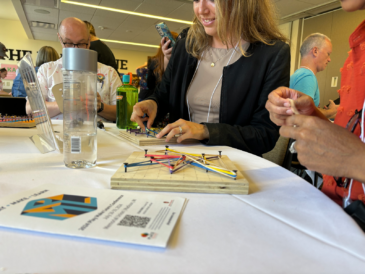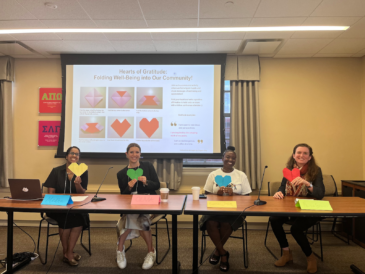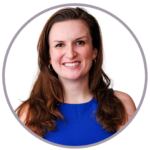Ever since I joined the Joan Ganz Cooney Center’s Well-being by Design Fellowship, I have found myself subconsciously auditing my entire virtual world for its well-being design considerations. Does the team budget spreadsheet system promote feelings of competence for my colleagues? How does my wedding website support guests’ sense of identity? Did this airline-app-that-shall-not-be-named consider users’ feelings of autonomy in times of a global airline outage at all? I was delighted to attend the Play Make Learn annual conference at UW Madison, which offered a much more relevant place to explore this framework in action, as well as share lessons learned from the fellowship with Olivia Korchagin (Global Tinker), Keeana Saxon(Kidogo Productions), and Medha Tareduring our panel. “Play Make Learn” offered endless examples of well-being both in the programs and people they highlighted, and the overall conference learning experience, which was designed to center identities, creativity, and relationships. Here’s a quick rundown of my highlights:

Artist and educator Lynda Barry opened her classroom (lovingly named The Comics Room) to pre-conference attendees, creating a four-hour space for play, collaboration, and wonder. We delighted in each other’s collages. We drew with our eyes closed. We brought doodles of ourselves as astronauts and vegetables and animals to life. We learned about our own inherent special styles, and helped others recognize the lines of their own. She invited us to observe the feelings we had in our bodies after this space of connection and creativity. Making things together and being delighted by others’ work “feels a whole lot like love,” Professor Summer Sausage (Lynda Barry’s current preferred educator pseudonym) says.
Rebecca Millerjohn from Madison Public Library shared Observation Deck, a digital formative evaluation tool that helps library facilitators collect and analyze data from learning experiences they host. By capturing pictures and observations and tagging them to learning frameworks, facilitators have the ability to gather and analyze qualitative data and outcomes in library programs that might otherwise be cumbersome or challenging to measure, like “developing relationships, developing confidence, engaging in self-directed tasks, or exercising creativity.” The ability to measure and track success of the measures that matter most to librarians allows them to continue to grow their ability to impact learners.
Aaron Trammell invited attendees to consider the history of tabletop game development in conversation with the history of the United States through his book talk on The Privilege of Play. He posed the question of “who has had access to leisure?” in thinking about the development and popularization of games, to help us understand where we’ve been and to understand the barriers that need to be dismantled to build a more inclusive future.
Rilla Khaled offered speculative play as a powerful way of engaging with social and cultural questions through games that represent unfamiliar possible near futures with familiar game functions. At the center of speculative design, interaction design, and playful design, she posits that speculative play experiences offer a hands-on way of engaging with the realities of big challenges.
Mouna Algahaithi from PBS Wisconsin and Megan Schädlich from The Healing Library facilitated a live tour through a virtual world of free resources that support children and families specifically impacted by trauma. They offered their own perspective on a wide range of ways that facilitators of family experiences can consider and design experiences that meet families where they are.

Jake Sanford and Karah Peña from KID Museum in Bethesda, Maryland shared their design considerations in building an environment of choice and agency for their kids, finding unusual in the usual to inspire wonder and excitement.
Ronni Haydon from CU Boulder shared a reflection practice through a Zine (“What Does Equity Mean to Me?”) they developed for staff from informal learning organizations “to surface what equity means to you and use it as a starting point for conversations.” The booklet asks questions of designers around values-driven design, including: “Beyond your own values, whose values are showing up in your space?”
Medha Tare, Olivia Korchagin, Keeana Saxon, and I spoke to values-driven design practices we had explored within the Well-being by Design Fellowship in our panel, “Applying Principles of Well-being to Digital Design for Kids”. We shared the power of auditing our tools against the RITEC framework’s components, and learning from the strengths of each other’s work to grow our own. We talked about the importance of including youth voices in our design practices. And we underscored the importance of holding ourselves accountable not only to the outcomes of products, but the makeup of our process, to ensure that children’s well-being is considered from the start.

Just as I had experienced learning about others’ products during the fellowship, I saw evidence of well-being components across the programs we encountered across the conference. No one program or product or experience will be solely responsible for growing any child’s digital well-being alone; a landscape full of people making things together and delighting and reflecting on one another’s work that center children’s well-being, however, may get us closer to creating digital spaces that play a positive role in childhood. The more experiences we can provide for kids that “feel a whole lot like love,” the better. For now, I’m grateful to have been able to be a part of the Play, Make, Learn conference world; it was a gift to be surrounded by designers of all kinds from many places who believe that more playful, affirming, loving learning spaces for kids are surely possible.

Melissa Gedney is the Senior Manager of the Learn Together Project at PBS KIDS, supporting co-design of content and experiences to foster intergenerational moments between kids and their grown-ups. She will focus on workshopping and identifying ways to integrate curated family- and educator-facing resources alongside kids’ products that add value and play to their media experience. She was a Well-Being by Design Fellow in 2024.

